7 Iconic NASA Photos Taken By Astronauts On The Moon
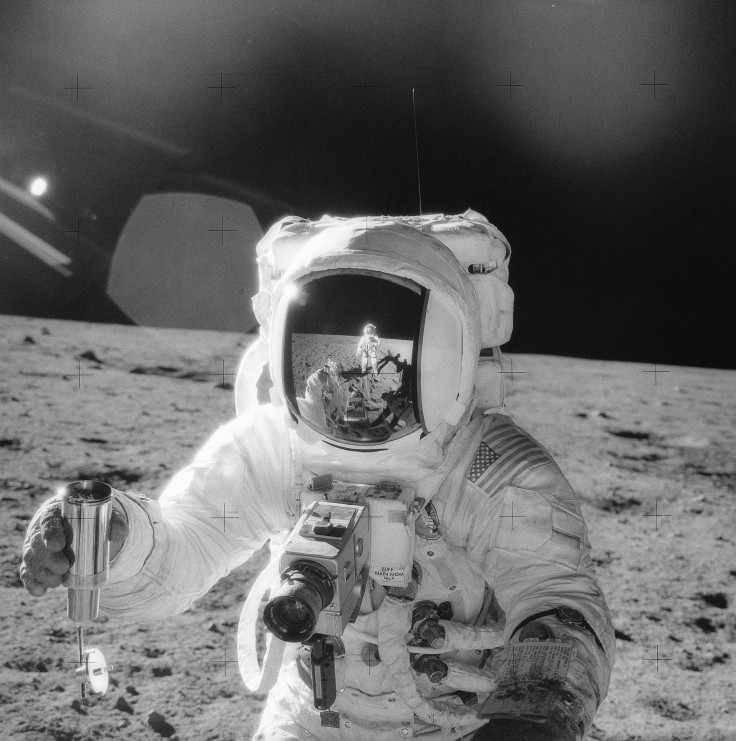
Earlier this week was the 48th anniversary of the day astronauts Neil Armstrong and Buzz Aldrin became the first humans to walk on the moon. Between their groundbreaking Apollo 11 mission and the few moon-reaching ones that came after, a dozen American men have set foot on the Earth’s best friend — and taken loads of photos to document their journeys.
Some of the most iconic images snapped by people who were not on our planet’s surface include the famous “blue marble” image of the Earth that shows its natural beauty and demonstrates just how small we are in the great expanse of the universe. But the pictures taken from the surface of the moon, although not all examples of expert photography, belong in a category of their own because of what they represent.
Walk this way
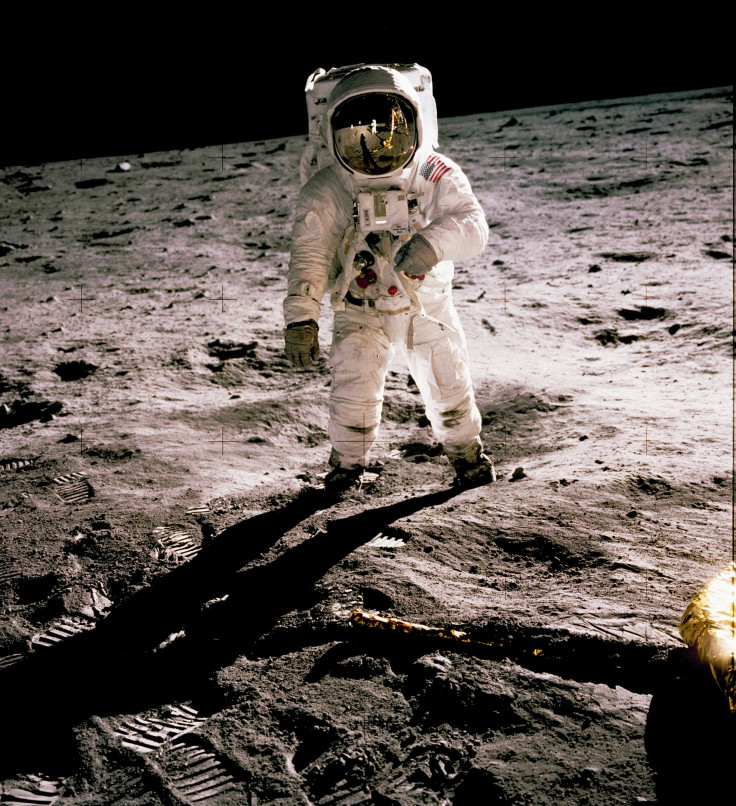
What list of moon photos would be complete without this historic image from Apollo 11? Buzz Aldrin, the second man to touch the lunar surface, is seen here on July 20, 1969, after stepping out of the lunar module once the Eagle had landed in the Sea of Tranquility. Neil Armstrong, who took the picture, can be seen in a reflection on Aldrin’s helmet visor.
One giant leap
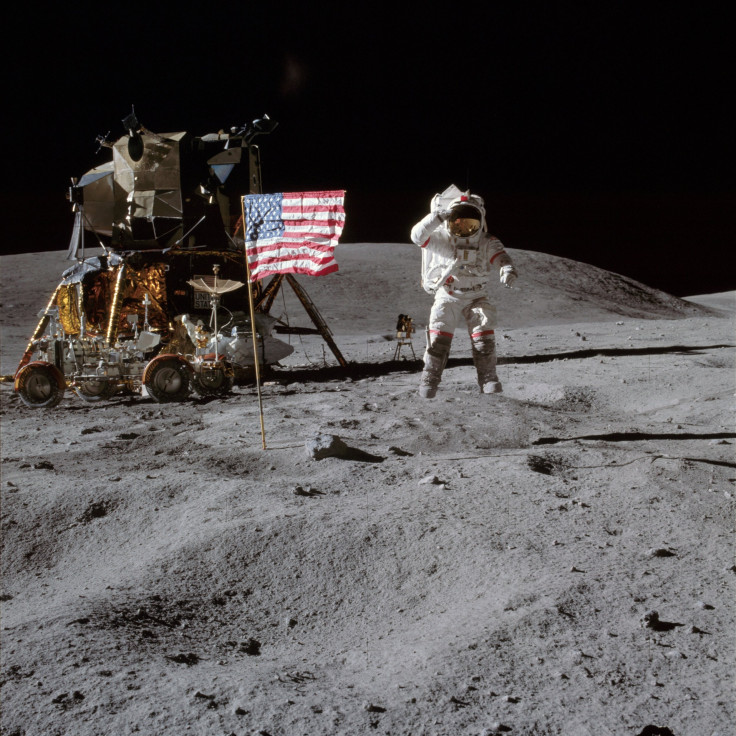
When Neil Armstrong became the first person to walk on the moon, he called it a giant leap for mankind. Apollo 16 commander John Young appears to have taken those words literally. In this image from 1972, Young is shown leaping into the air as he salutes the flag of the United States in front of the lunar module Orion, the lunar roving vehicle and the moon’s Stone Mountain. Fellow astronaut Charlie Duke took the photo.
Read: Mars Got Photobombed in the Best Way
Giving the moon the boot
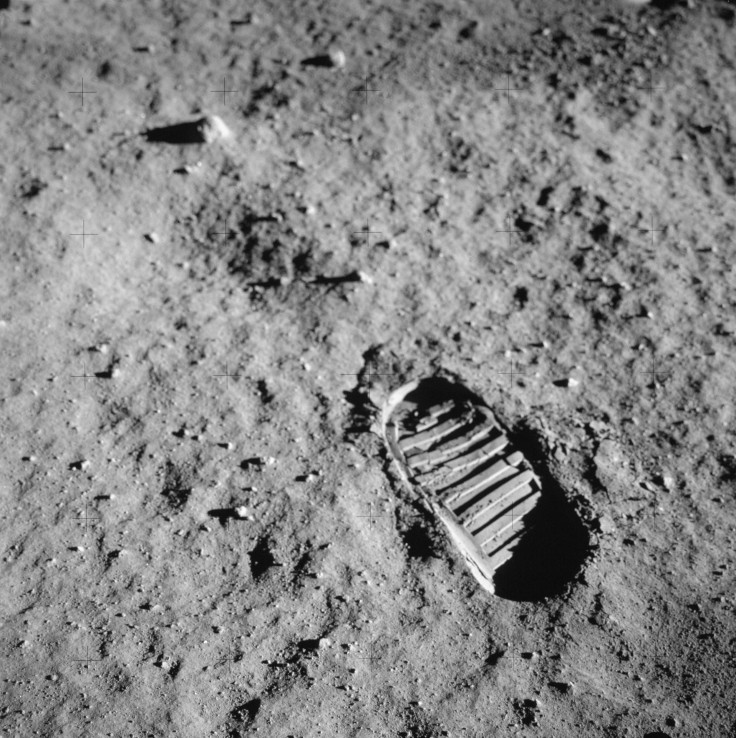
When Apollo 11’s Neil Armstrong and Buzz Aldrin became the first people to walk on the moon, they left their mark on both the people of Earth and on the moon itself. This image from their 1969 image shows a footprint — or more accurately a bootprint — left in the lunar soil by an astronaut’s spacesuit during their trip outside the lunar module Eagle.
Driving Mr. Daisy
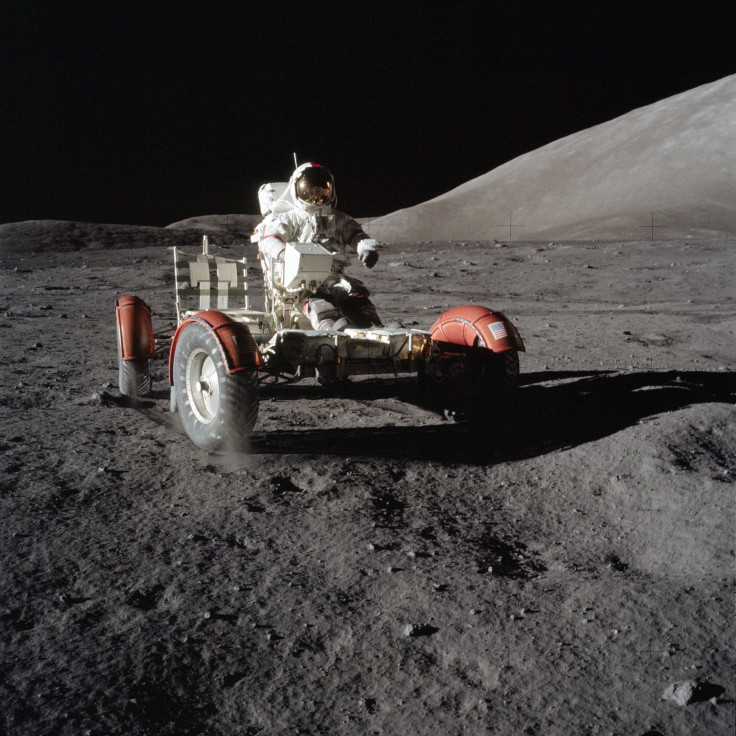
In this photo taken during Apollo 17 in 1972, the final mission that landed humans on the moon, commander Gene Cernan takes a ride in the lunar roving vehicle during one of his trips outside of the lunar module Challenger. He was checking out the rover before the team packed their stuff onto it — scientific gear as well as antennae and television equipment. Astronaut Harrison “Jack” Schmitt took the photo.
Coming in for a closeup
NASA doesn’t know which of the two Apollo 12 astronauts is the subject of this photo and which is the photographer, but it’s a closeup that gives great detail of the spacesuits that Charles “Pete” Conrad and Alan Bean wore on the surface. In the astronaut’s right hand is a container of lunar soil, one of the numerous rock samples that the pair brought back to Earth — with the total weighing 75 pounds. Apollo 12 launched to the moon a few months after the groundbreaking Apollo 11 mission.
Read: Now You Can Watch Tons of Old NASA Footage
The rest is history
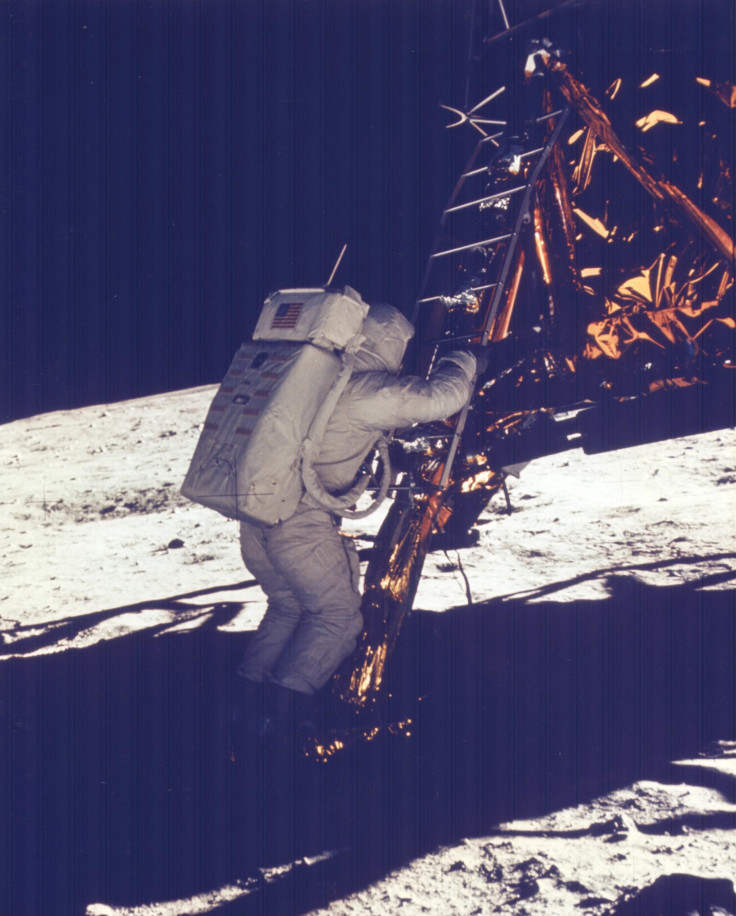
Right after Neil Armstrong became the first man to set foot on the moon during the Apollo 11 mission in 1969, he turned around to take a photo of Buzz Aldrin, who was descending the ladder of the lunar module Eagle and about to take his own first steps.
Broad stripes and bright stars
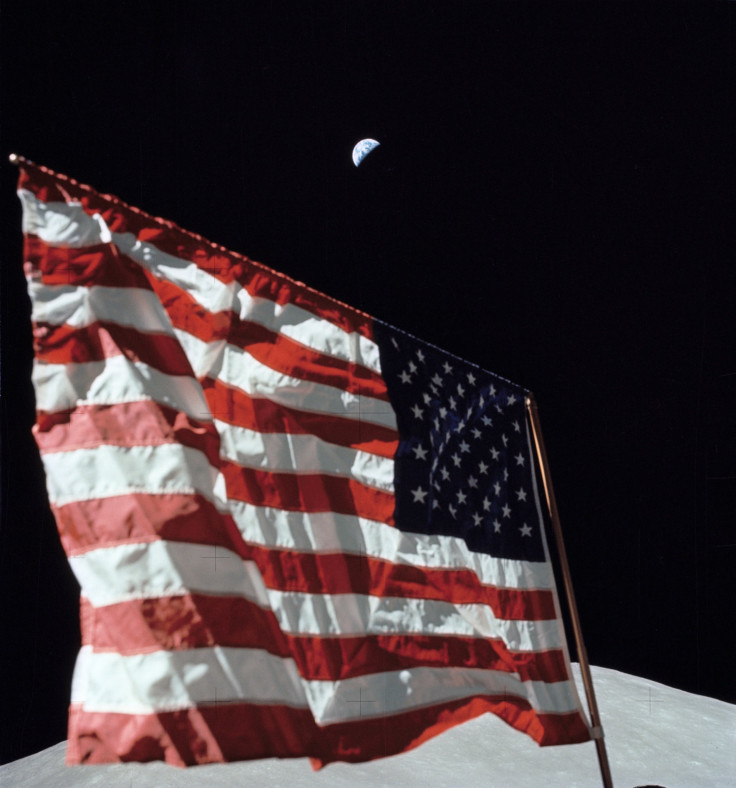
When Apollo 17 reached the moon, the astronauts who descended to the lunar surface, Gene Cernan and Jack Schmitt, planted an American flag at their landing site, called Taurus-Littrow. In the foreground with the U.S. flag is the moon’s South Massif, while a crescent Earth shines like a blue and white beacon in the dark sky.
Bonus image: Return to me

After staying on the moon for almost a whole day, Apollo 11 astronauts Neil Armstrong and Buzz Aldrin packed up and launched the lunar module Eagle back toward the command module Columbia, where Michael Collins was waiting for them and took this photo. He had remained in orbit around the moon while Armstrong and Aldrin walked on the surface.
© Copyright IBTimes 2025. All rights reserved.



















